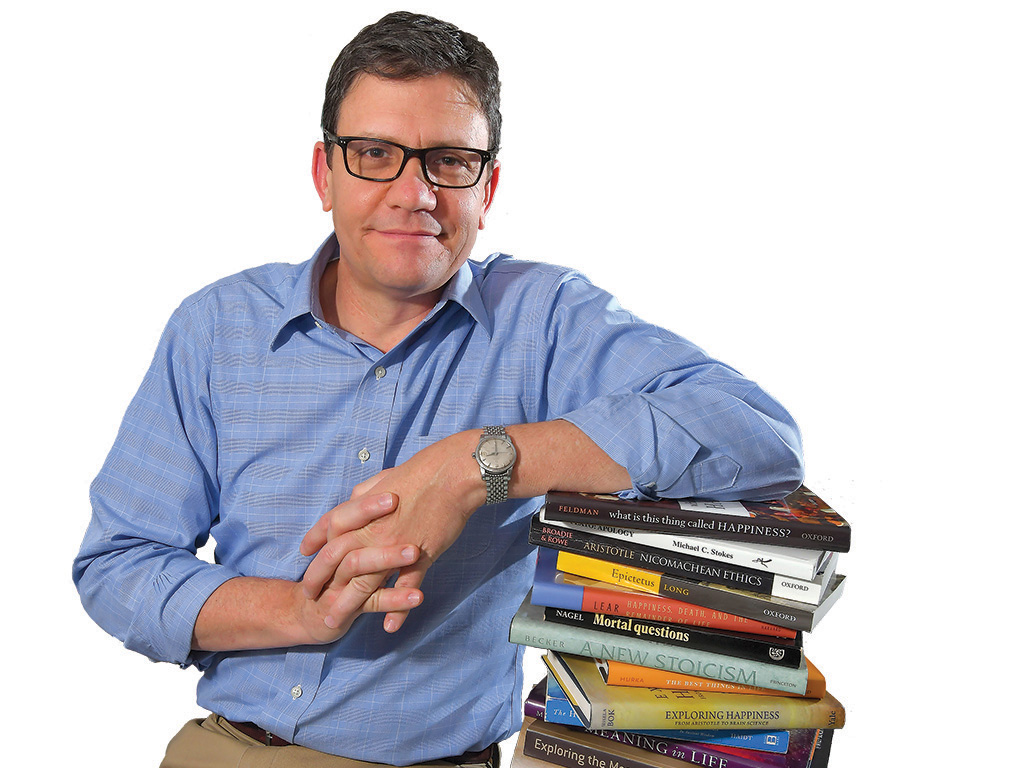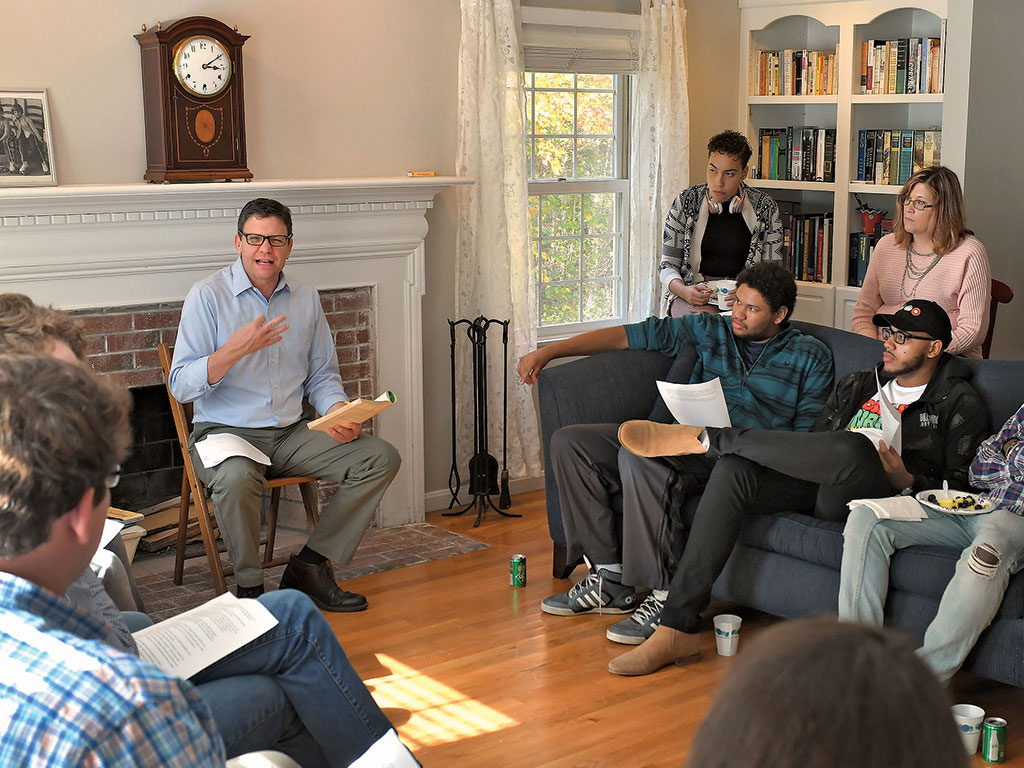‘What is the Good Life?’

By John Partridge
In my research I have explored Socrates’s assertion that “the unexamined life is not worth living.” He thinks that persistent examination, or philosophy, is the highest value. It gives him happiness (eudaimonia) to “care for the soul” in this way. I’ve tried to make sense of that claim but it’s not easy.
First, his concept of happiness is not the same as ours. Second, his insistence that there is a single, highest activity that is best for everyone seems gravely mistaken. Third, is philosophical examination really the best path to happiness? Let’s just say it’s not something that my students normally write on their end-of-year course evaluations. Accordingly, we have a lot of work to do to make sense of what he’s saying and why.
A good life might involve lots of happiness but much less morality. Or you could be very devoted to serving others, even at the expense of your own happiness and well-being, and still be thought to live well. Or you might have very low levels of happiness and contribute little to the welfare of others, but still have a meaningful life.
One example of this last category that I’ve used in class is Paul Gauguin, the artist. He was miserable much of the time. He neglected his wife and children. But he made great art of lasting importance. If you think his life was good, despite those considerable shortcomings, then it is because he was able to create meaning in it.
I believe that Socrates’s conception of a good life brings all three of these aspects together. In the course, we break apart the different aspects to examine the most important theories in each tradition. And I challenge students to think about what the formula for them would be. How might they integrate distinct sources of value in their own lives? How might they live the best life for them?
The biggest difference between this version of the course and the one I taught in 2012 came from the inspiration of Professor Bianca Cody Murphy. Her First Year Seminar (FYS) on the “Psychology of Happiness” lays heavy stress on experiential learning. So, I wanted to keep the critical evaluation of the ancient and modern texts but also add activities that have been shown to improve happiness and well-being.
These assignments included requiring students to take a survey to discover their character strengths, write a letter of gratitude, practice Stoic thought disputation and engage in various aspects of campus life. For example, they were required to go to a sporting event, a lecture and an arts or music event, among other things, and then briefly reflect on it.
Critically evaluating important arguments, testing out concepts, engaging in activities or building relationships and then reflecting on them—our goal was, in microcosm, the goal of a liberal arts education. We sought greater insight into ourselves, and our interconnectedness with one another, so that we can live fuller and more rewarding lives.

One of the most exciting parts of the course for me was the final project in which students produced a Handbook on the Good Life. Early in the semester we read Epictetus’s Handbook, a volume that distills Stoic teachings into something pithy so that readers would always have its precepts at hand.
We also read 19th and early 20th century counterparts in a visit to Wheaton’s archives; these guides included old versions of the Wheaton student handbook, and various guides and manuals from the Victorian era forward. For the final project, we reflected on how one could produce such a handbook in 2017 and what it would contain.
Some used digital media (like websites or social media platforms) while others wrote letters or essays, and one wrote a children’s book. My creative, risk-taking
students produced art. One transformed her class notes and written assignments into an interactive sculpture. Another composed, scored, performed and recorded a rap.
Taking all of it in, I saw the incredible journey they had undertaken in just four months. As I had predicted, their ideas about the good life reflected their youth and the fact that they were undergoing serious transitions as they step into adulthood.
So, there was lots of emphasis on autonomy, self-expression, authenticity and the like. They are looking forward much more than backward. They are eager to make something of themselves or to leave a mark.
But also it was fascinating to see many of them resume the ancient debate on whether the good life depends on things outside our control. Several students followed Socrates’s lead and considered how to bring their happiness and moral commitments into alignment. A few who were inclined in August to accept the hedonist account of happiness (that happiness is pleasure or desire-fulfillment) now offered more complicated versions like J. S. Mill’s. He famously said that “it is better to be a human being dissatisfied than a pig satisfied; better to be Socrates dissatisfied than a fool satisfied.”
Above all, I saw the students reassemble a lot of the pieces of Socrates’s account of the good life into fresh and ambitious visions for the life they wanted to lead:
“More than simply a positive mood, happiness is a state of well-being that encompasses living a good life—that is, with a sense of meaning and deep satisfaction.”
— Michael Vallerie ’21
“I believe that happiness is the key to having a satisfying life, and for me I mainly find happiness in people. Whether it’s making people happy or just being around the people who make me feel a great deal of pleasure just by their presence. I constantly am on a pursuit to find or to be with people who I connect with and immediately feel pleasure in their presence.”
—Justin Bushway ’21
“Our lives can be meaningful because of the little pieces of our lives that slowly add up, even if they never produce a completed work of art. Being engaged in our lives is what gives them meaning.”
—Qianrui Tammy Guo ’21
“It is OK to feel confused about one’s own happiness.”
—Emma Jarvis ’21
Suggested reading:
Six Myths about the Good Life: Thinking About What Has Value by Joel J. Kupperman (Hackett Publishing Co., Inc., 2006).
